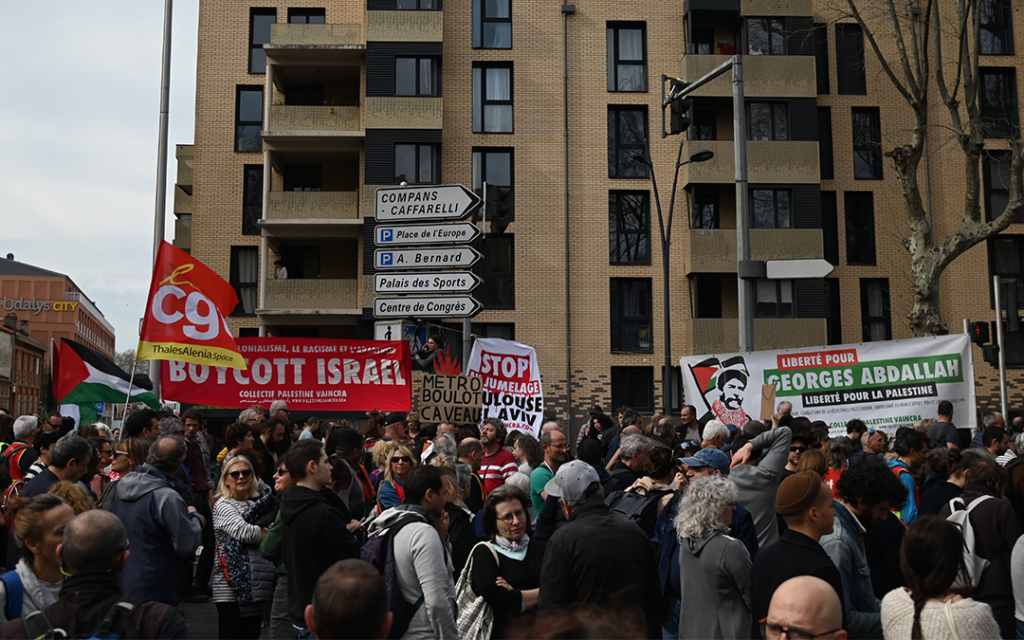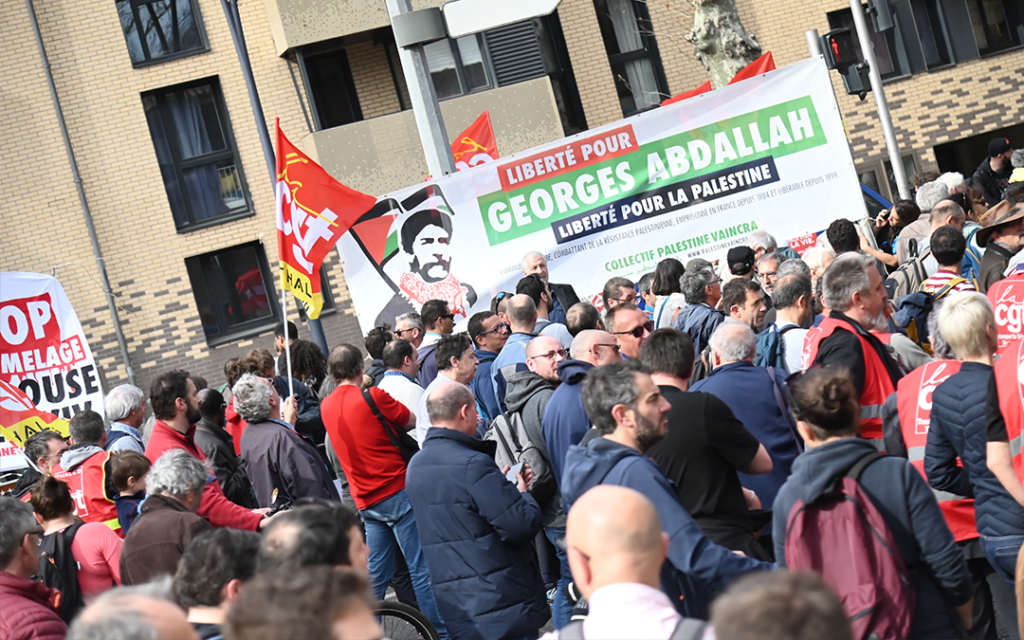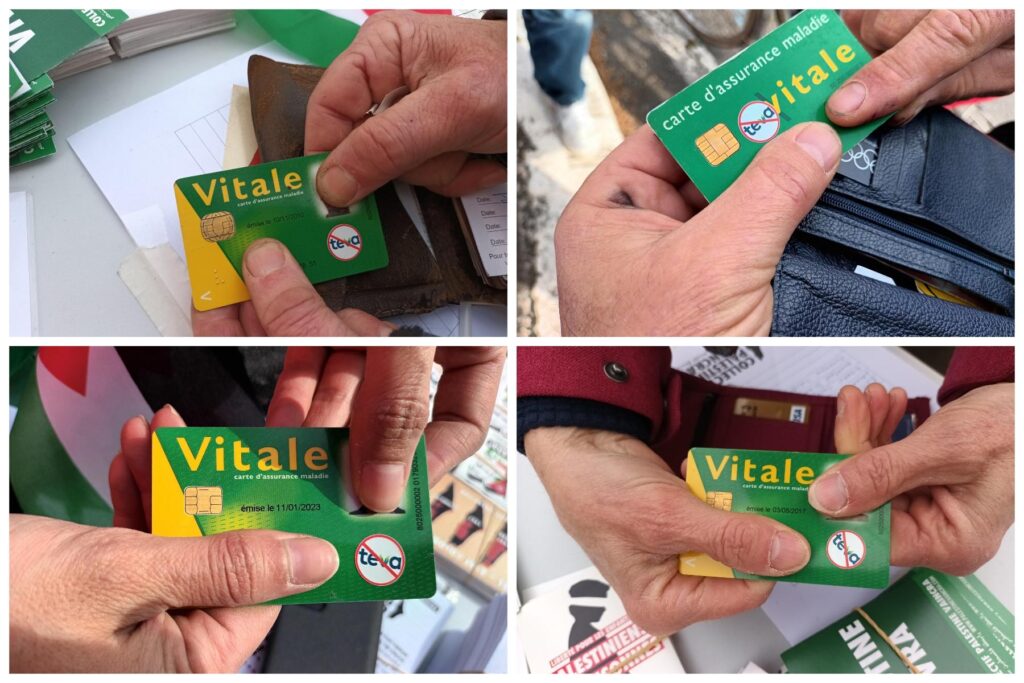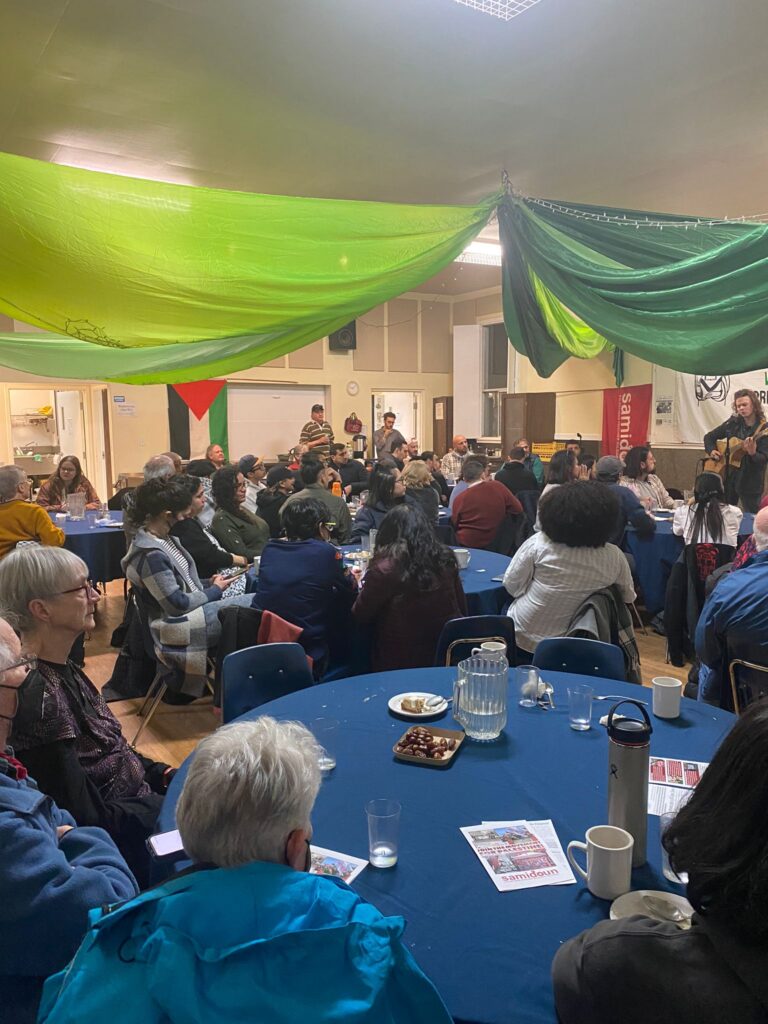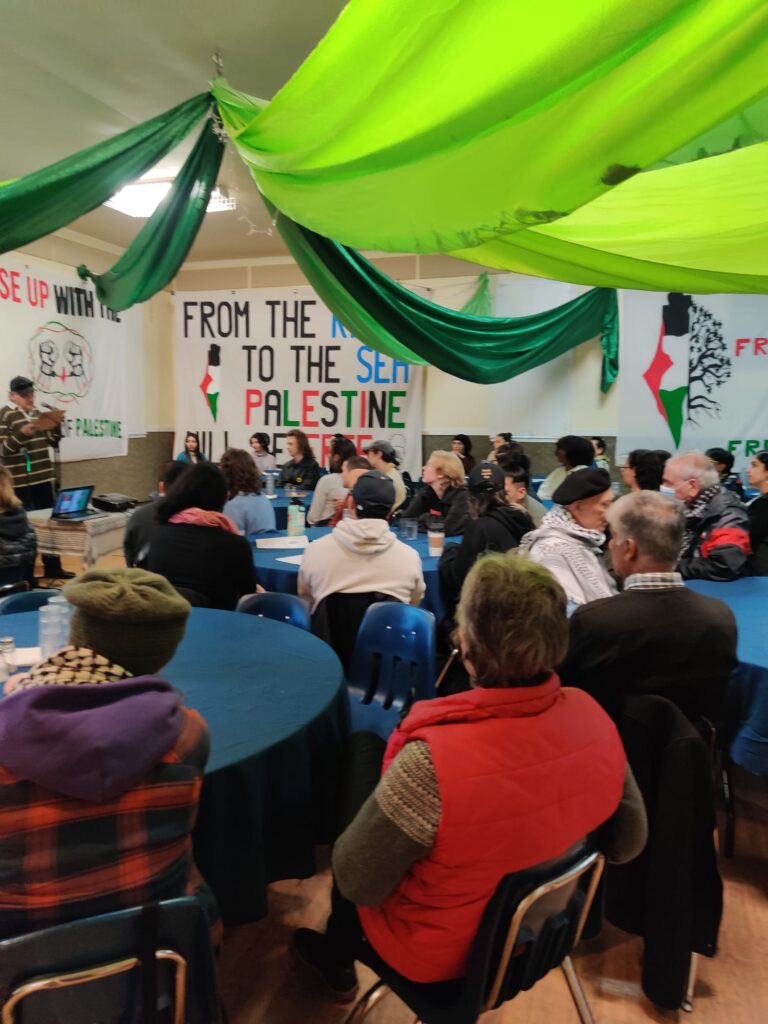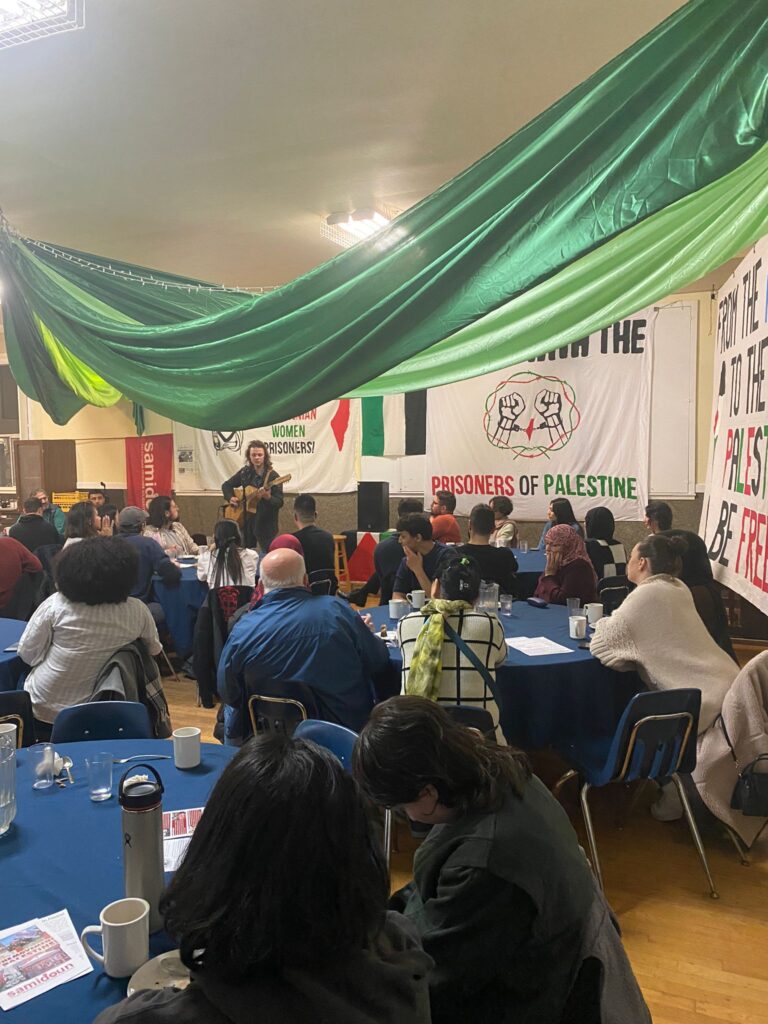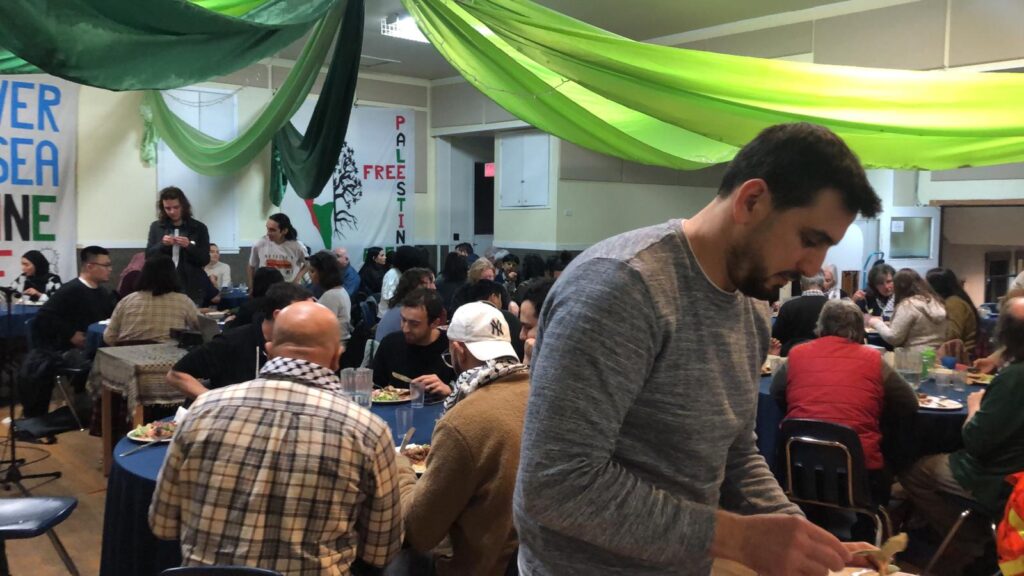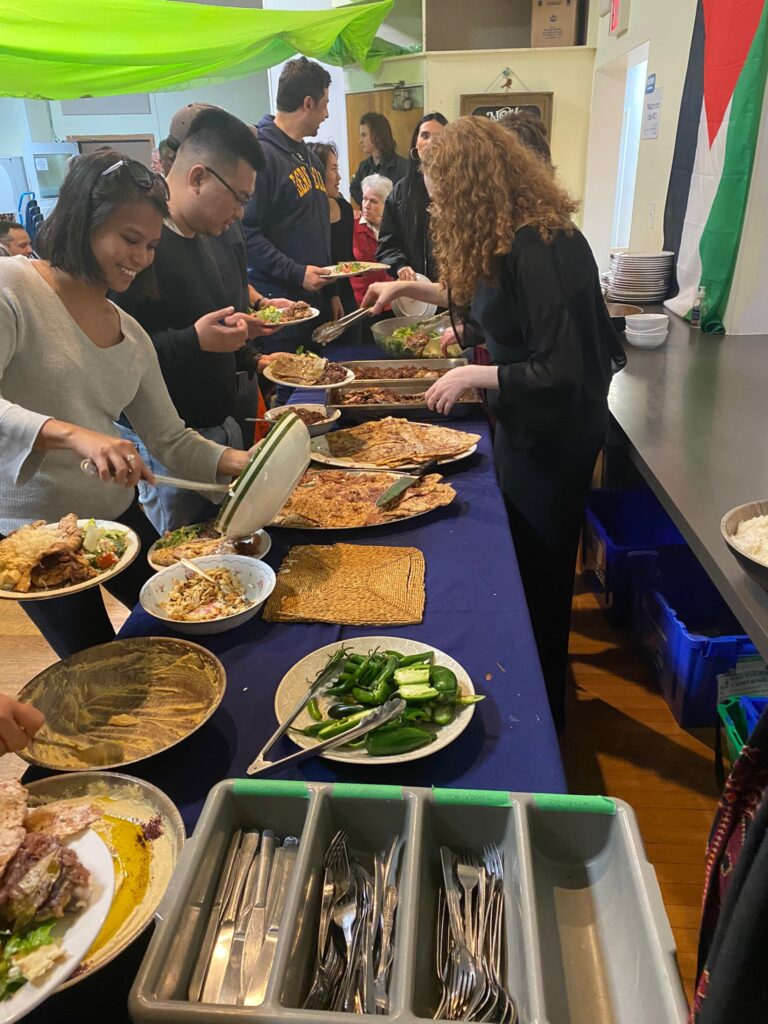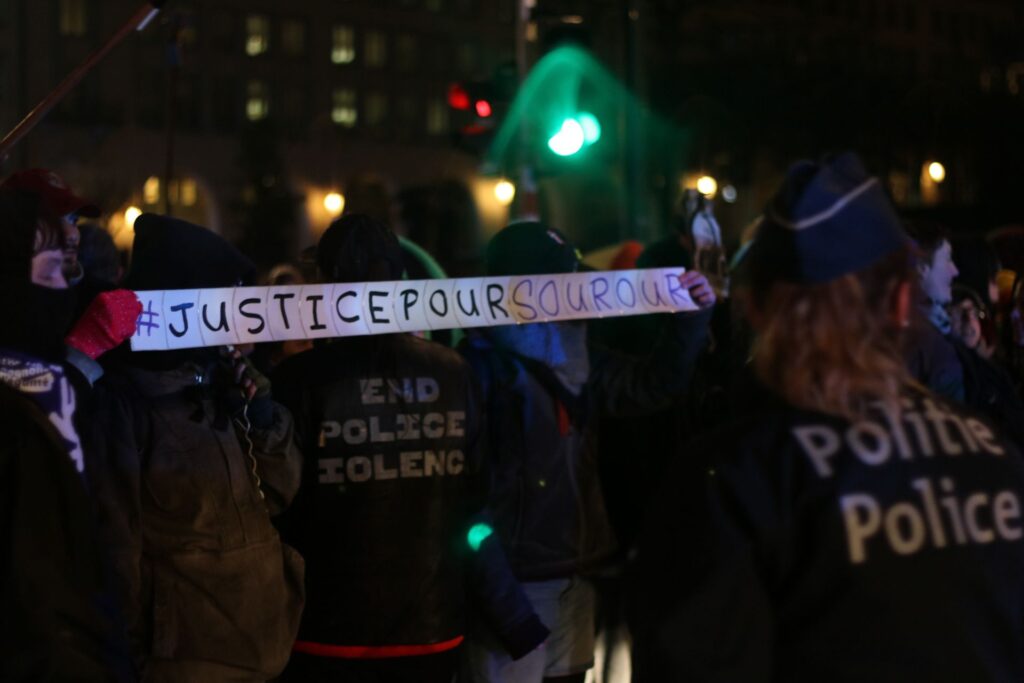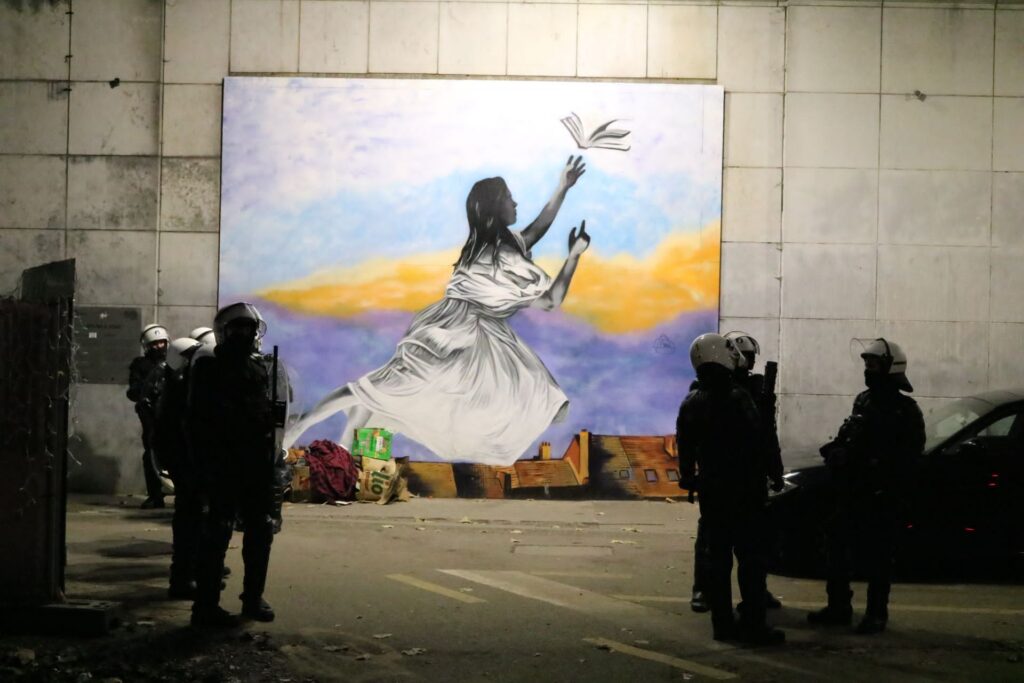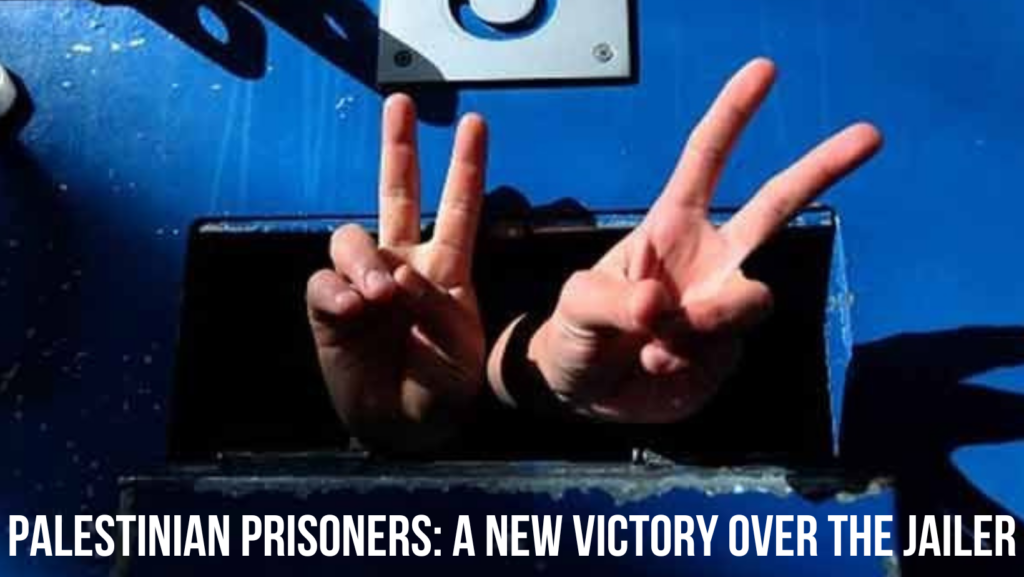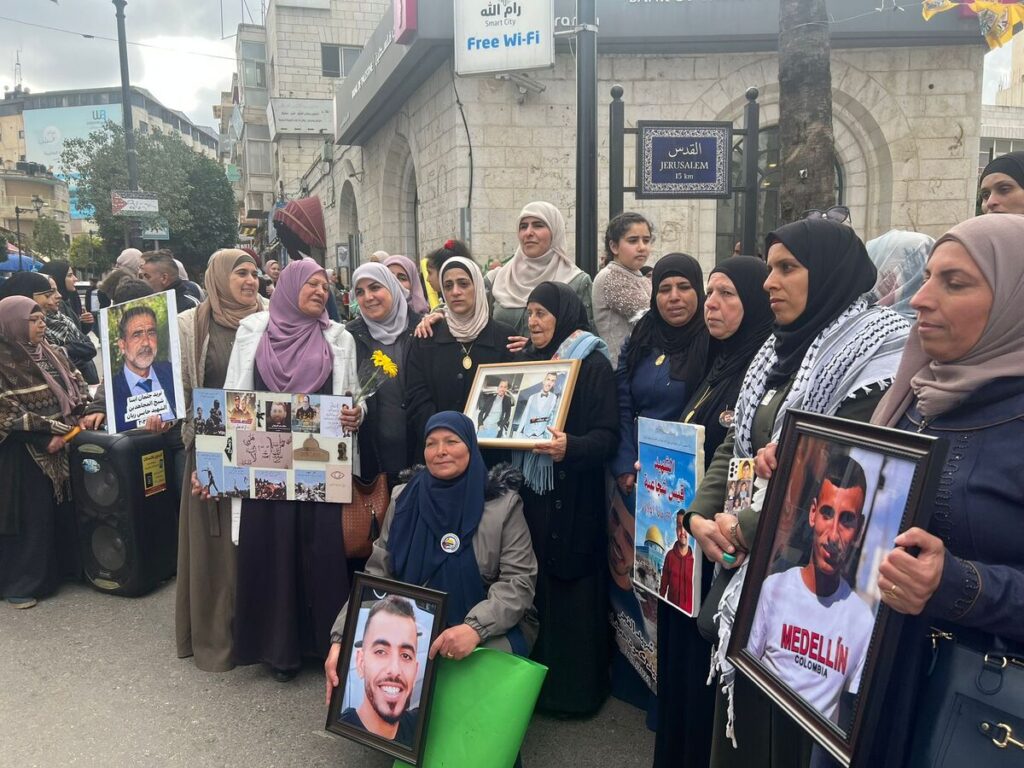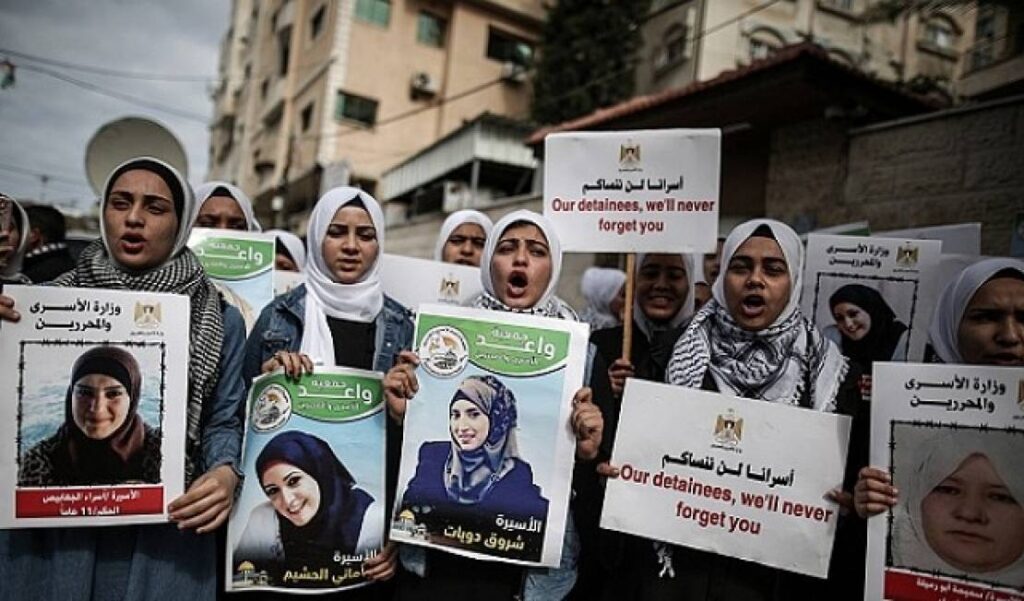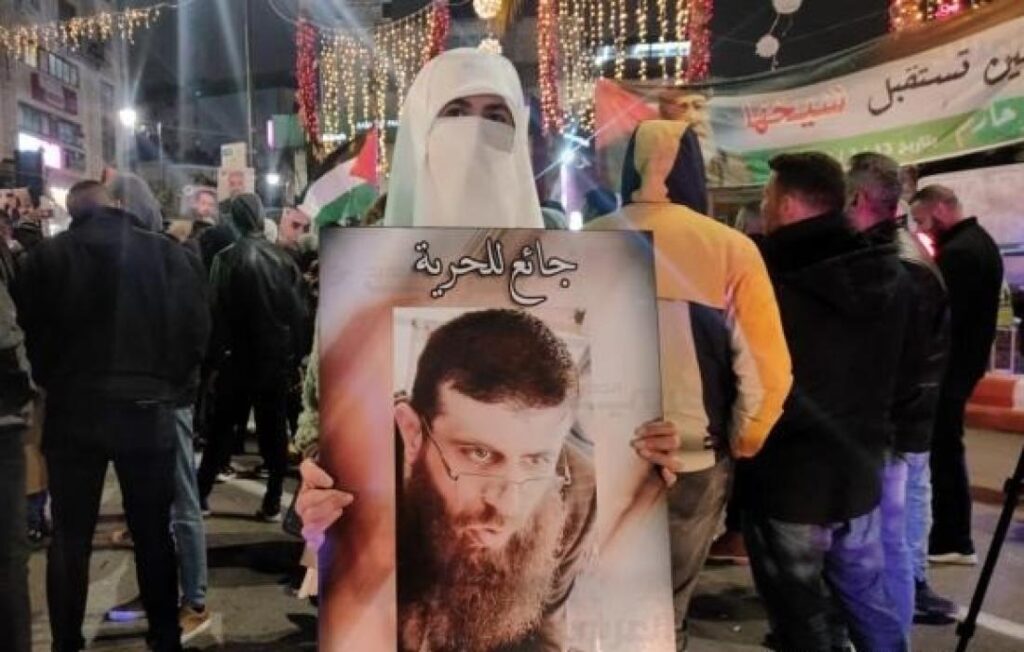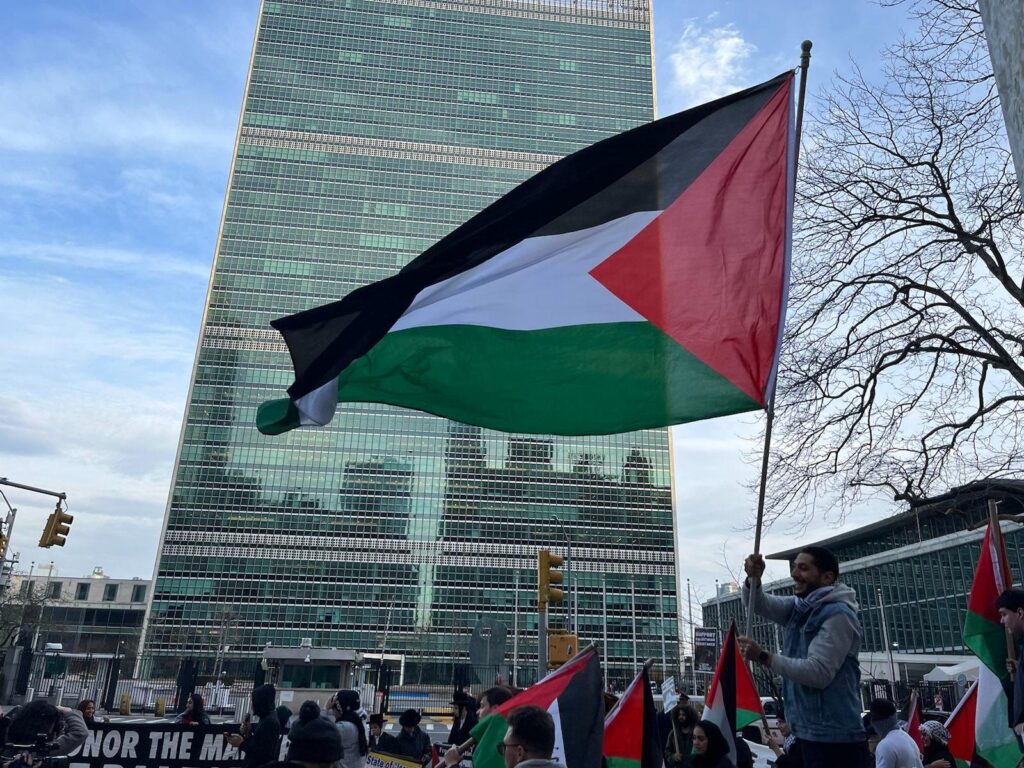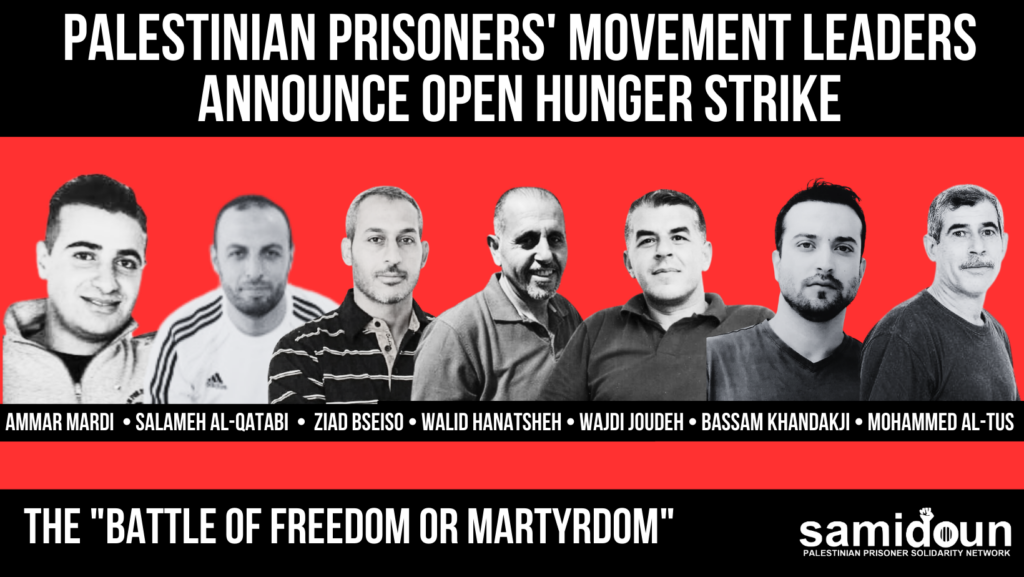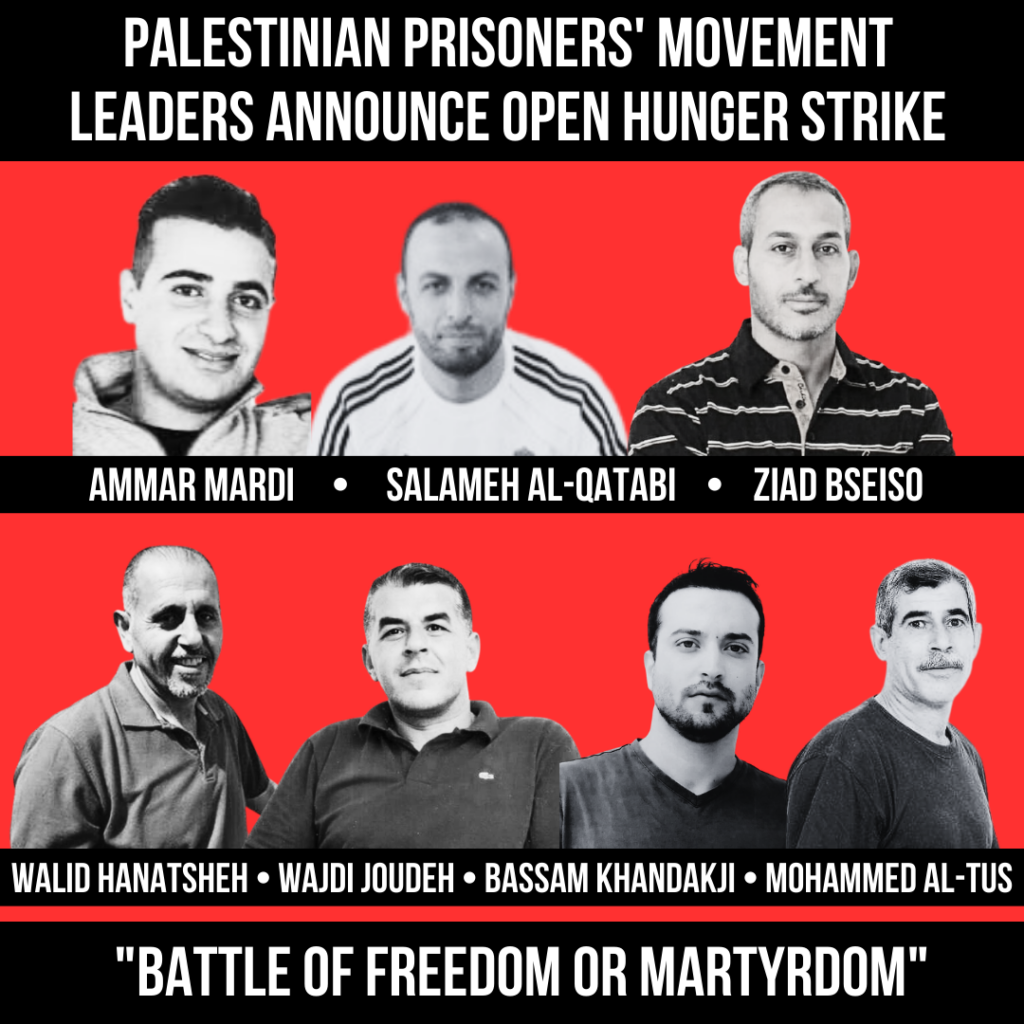
On Saturday, 18 March, over 200 people marched through the streets of Gothenburg, Sweden, in solidarity with the Palestinian people against massacres and attacks by the Zionist forces. The demonstration, organized by the coalition of Palestine organizations in the city, also came as part of the International Campaign to Liberate the Remains of Palestinian Martyrs.
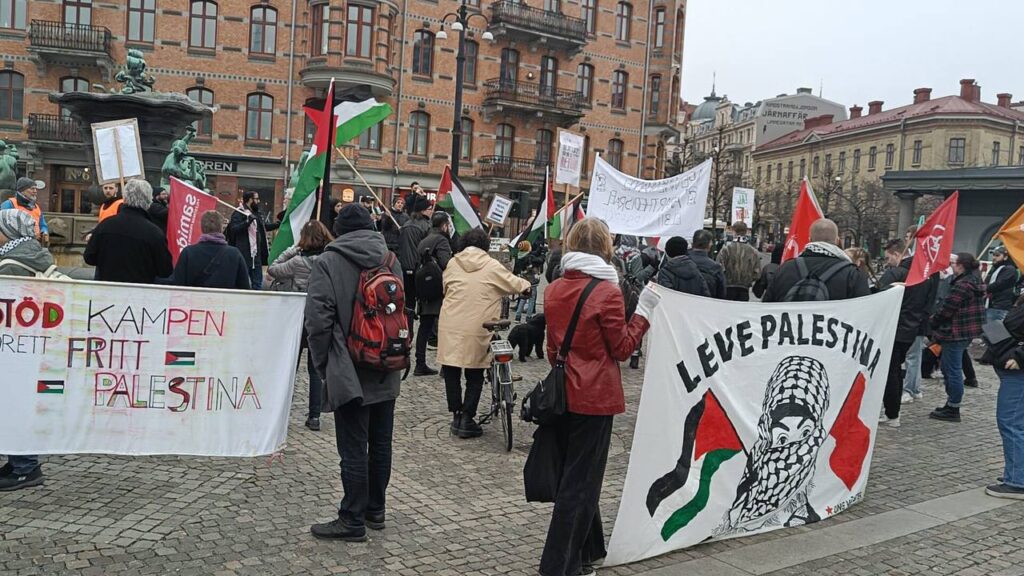
Demonstrators expressed their outrage at the massacres carried out by the occupying power, either via formal military attacks or paramilitary settler-led pogroms on Palestinians. The demonstration filled Gothenburg’s streets with slogans such as “All of Gothenburg – Will boycott Israel!” and “From the river – To the sea – Hear the call for freedom!” Below is a speech given by Samidoun Gothenburg:
https://twitter.com/SamidounPP/status/1637154711722954752
Long live the struggle for a free, united and democratic Palestine, from the Jordan River to the Mediterranean Sea! Long live the struggle for the right of return of all Palestinian refugees! Long live the struggle for the freedom of all Palestinian prisoners from Israeli and international prisons! Long live the Palestinian resistance by all necessary means against imperialism, colonialism and fascism, against occupation, apartheid and settler colonialism! Honor and glory to the martyrs of the Palestinian resistance!
The Palestinian prisoners are on the front line against the occupying forces, risking their lives in the struggle for their liberation and that of the whole of Palestine. Since mid-February, the Palestinian prisoners have been conducting an intense campaign against the occupying forces with one goal: Freedom at all costs. On March 22, the first day of Ramadan, they will launch an unlimited mass hunger strike, with one goal: Freedom, through victory and release or through martyrdom.
Not content with detaining living Palestinians, the Palestinian prisoners’ movement has launched an international campaign for the freedom of the imprisoned martyrs. Freedom from morgues and from number cemeteries, where the occupying power has tried to deprive the Palestinian martyrs of their identity and their families of a chance to honor and mourn them.
Today, March 18, is also the International Day for All Political Prisoners. International prisoners like the Lebanese communist Georges Ibrahim Abdallah, imprisoned in France since 1984 for his participation in the struggle for the liberation of Palestine. International prisoners such as the Turkish and Kurdish anti-imperialists and anti-fascists held by Germany under the infamous paragraphs 129 a and b. These laws carry echoes of the darkest days of German imperialism and should be uncomfortably familiar to us in Sweden, especially Palestinian friends and internationalists.
Palestinian writer and revolutionary Ghassan Kanafani, who was murdered along with his 8-year-old niece Lamis by the occupying forces with a car bomb, said: “The Palestinian question is not only a question for Palestinians, but for every revolutionary, wherever he is, as a question belonging to the exploited and oppressed masses of our time.”
This is not only true for reasons such as Israel’s largest arms manufacturer, Elbit System, testing weapons and surveillance systems on the people of Palestine before selling them on to strengthen the deadly hunt for migrants along Fortress Europe’s borders or to monitor citizens and influence political processes worldwide. While we stand with heart and mind, with words and deeds with the Palestinian struggle against the occupying power, we in the solidarity movement primarily meet opponents other than the occupying power itself, namely the friends of the occupying power here in Sweden. From across the political spectrum, we meet those who ignore oppression to promote Swedish business, those who confuse with empty promises of negotiations for a fake peace, and even those who see Israel as a political and social model.
Here in Sweden, the same forces that normalize and relativize the occupation of Palestine want to militarize social vulnerability and poverty on the one hand, and criminalize all forms of popular movements and freedom struggles on the other. Therein lies at least part of Ghassan Kanafani’s lesson to us: Not only should we stand with Palestine in the broadest sense, we must carry Palestine with us into all struggles for political, economic and social liberation. And when social power becomes more and more authoritarian, and international solidarity and the struggle against imperialism, colonialism and fascism are labeled as terrorism, then we must stand up and say: Then we are the terrorists of peace, freedom and equality!
Boycott Israel for the liberation, return and revolution of the whole of Palestine, from the river to the sea!
Several other speeches were given, including by Allt åt alla Göteborg who drew attention to the international campaign about the Palestinian martyrs deprived of their freedom whose remains are kept in the occupation’s morgues and so-called “numbers cemeteries”:
When settlers burned down parts of the village of Huwara in occupied Palestine earlier in March, it was part of a pogrom against the Palestinian people. The settlers were supported by the Israeli army. In recent weeks the Zionists have killed, killed and killed again in an attempt to ethnically cleanse Palestine.
Sometimes people try to defend Israel’s actions by saying that Israel only responds to Palestinian attacks. But to say this is to turn a blind eye to what the conflict is really about. It is not a conflict between equal parties.
It is a conflict where one side, Israel, has the means to subject the other side, the Palestinians, to more than seventy years of occupation and apartheid. It is a conflict where all the right is on the side of the Palestinians, yet the world turns a blind eye to Israel’s constant abuses.
Israel murders and occupies without any real legal or political consequences from the outside world. They murder the children and the elderly. They prevent Palestinians from cultivating their land and fishing in the sea. And when the young and the brave demand the right to freedom, they are murdered. Anyone who resists, the Zionists try to murder quickly, and those who do not are murdered slowly in the great prison that Palestine has become.
Israel is a state built on the ruins of burned Palestinian villages.
Israel even tries to continue the oppression of Palestinians after they have been murdered. The occupiers have seized many of the bodies of the murdered after the massacres of the last few weeks.
Hundreds of Palestinians are buried in numbered cemeteries – unmarked graves where Israel hides the victims of its occupation policy. Yet another way to oppress a people, and a violation of all the Geneva Conventions.
The enemies of Palestine are always talking about peace and negotiations. But how can you talk about peace with an enemy that continues to murder and oppress no matter what you do?
No, to hell with negotiations and gifts to the occupiers. Anyone living under occupation has the right to resist. Until the day Palestine, all of Palestine from the river to the sea, is free, we can only applaud those who resist the Zionist occupation by all means.
Long live Palestine – crush Zionism.
Learn more and get involved with Samidoun Göteborg — and throughout Sweden — by visiting the Samidoun Sweden website and the Samidoun Göteborg instagram!
